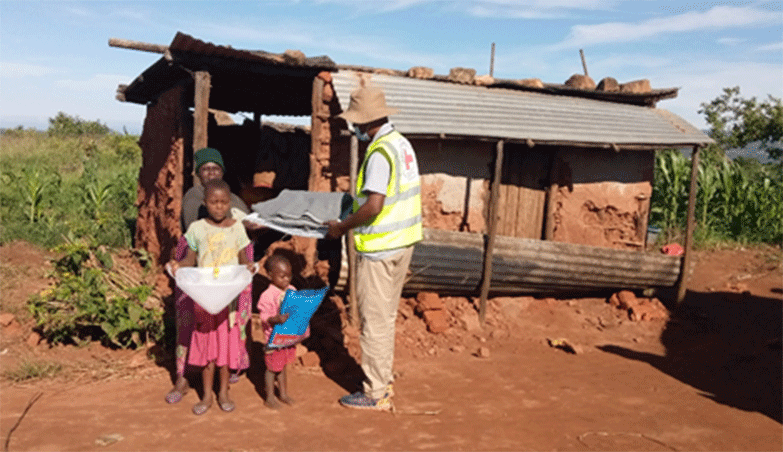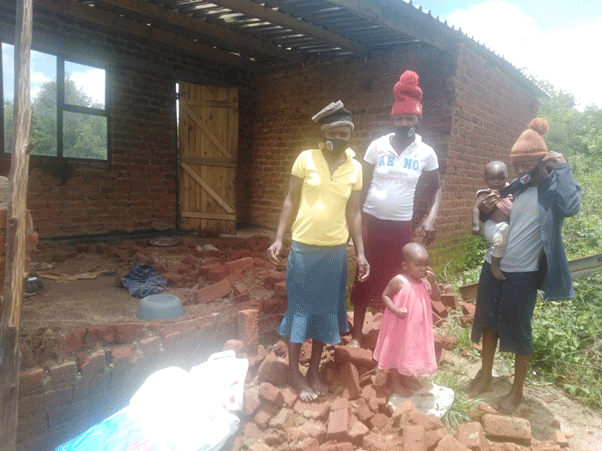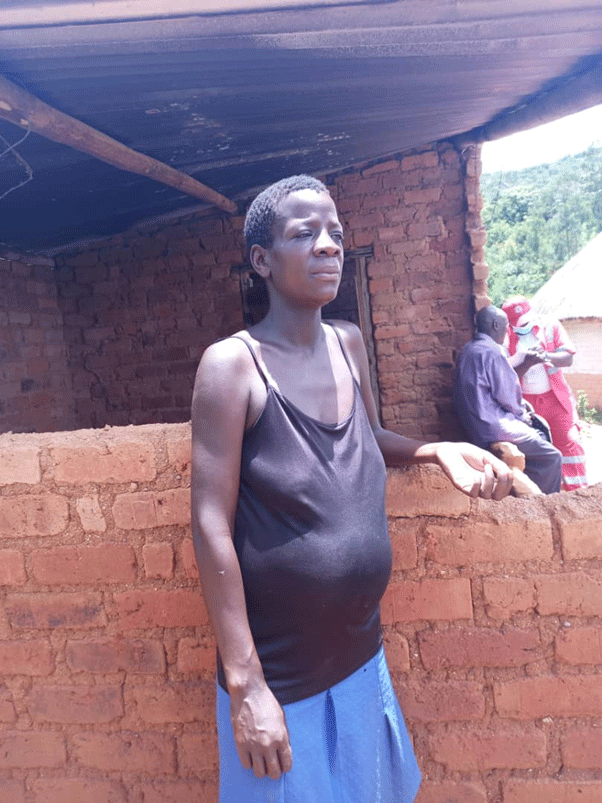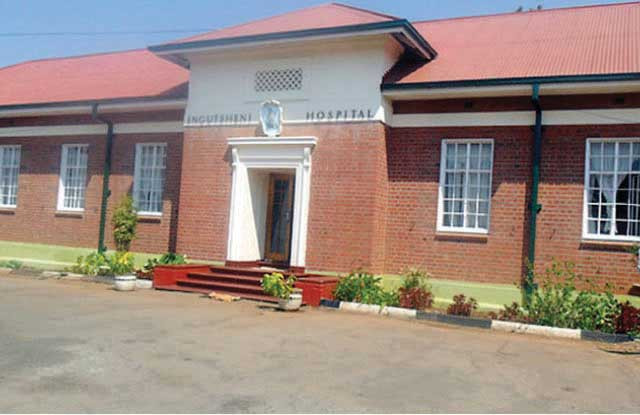
BY MOSES MUGUGUNYEKI
The traumatic events on the night of March 16, 2019 still linger in Agnes Rinesu of ward 6 in Chipinge rural district and that of many people in Manicaland province’s minds.
It was a night that Cyclone Idai, a tropical storm regarded as the worst natural disaster to have happened in the country in the last decade struck, affecting 270 000 people and leaving 340 people dead in the country.
Several people went missing during the tropical storm that was characterised by flooding and landslides.
According to a World Bank 2019 report, Cyclone Idai had a great impact on agriculture and rural infrastructure such as shelter, sanitation, drinking water, electricity supplies and transportation services with estimated direct damages of $622 million.
The tropical storm, which also wreaked havoc in Mozambique and Malawi, affected nine districts in the country with Chimanimani and Chipinge districts being the hardest hit.
“We might have survived Cyclone Idai, but we felt its effects as most services were disrupted,” said Rinesu, a mother of seven children.
“We had incessant rains followed by strong winds later in the night.
- Chamisa under fire over US$120K donation
- Mavhunga puts DeMbare into Chibuku quarterfinals
- Pension funds bet on Cabora Bassa oilfields
- Councils defy govt fire tender directive
Keep Reading
“The following morning we woke up to see massive damage caused by the rains accompanied by the strong winds.”
While Rinesu and other people in Manicaland province were recovering from the effects of Cyclone Idai, two tropical storms — Cyclone Chalane and Cyclone Eloise — hit in a space of one year.

“We were still nursing the emotional wounds and recovering from Cyclone Idai when we had other tropical storms here in Chipinge,” she said.
“We again survived these two since they were not as deadly as Cyclone Idai, but still the tropical storms damaged roads, more so, we could not access other services like visiting the clinic or going to the shops.”
However, just recently, luck was not on Rinesu’s side as her house gave in to strong winds accompanied by heavy rains, which were caused by a tropical depression — tropical storm Ana.
The tropical storm weather system brought winds, heavy rains, damage and destruction to parts of Madagascar, Mozambique, Malawi and Zimbabwe, affecting thousands of people.
“We were sleeping in our bedroom when around 2 am on Tuesday January 25, we found ourselves in the open after the house was damaged,” Rinesu said.
“We lost everything from clothes, utensils, food to our houses and we had to endure the remaining hours of the night packed in one corner of our small hut, which serves as the kitchen with five children.
“We had a traumatic experience, but it was worse for the children.”
Today Rinesu shares the small hut with her children aged four years, five, eight years, 10 and 21 years.
For the last four years, communities in Manicaland province have suffered devastating calamities triggered by climate and other natural hazards.
The Southern Africa region has been hit by several cyclones, Cyclone Eline (2000), Cyclone Japhet (2003) and Cyclone Dineo (2017), Cyclone Idai (2019), Cyclone Chalane (2020), Cyclone Eloise (2021) and lately, Cyclone Ana.
These recurring natural disasters have had devastating effects on women and children and according the United Nations’ Global Humanitarian Overview 2019, natural disasters “exacerbate gender inequalities, particularly against women and girls”.
The Global Health Observatory, a World Health Organisation portal providing access to data and analyses for monitoring the global health situation, asserts that “natural disasters on average kill more women than men or kill women at a younger age than men”.
According to the Department of Civil Protection (DCP), more than 400 people were affected by Tropical Storm Ana, with the majority being women and children.
Violet Kufangenyasha from Chipinge’s ward 6, looked distraught as she received relief material from the Zimbabwe Red Cross Society (ZRCS) last week after her house was destroyed by the cyclone-induced rains.
The 65-year-old woman stays with her four grandchildren.
“The house was destroyed when we were sleeping in the dead of the night with the children, but fortunately, it’s one side that gave in and no one was injured,” Kufangenyasha said.
“The challenge that we have is that we are now sharing one room and it has become overcrowded with the family belongings in one corner.
“I have a 14-year-old grandson and we are now forced to share with him the same room alongside his three sisters.”
Villagers in Nyanga South said the tropical winds left a trail of destruction in the area affecting mostly women and children.
Edrelin Machesa (23) of Village 57, Ward 27 in Nyanga said she was injured while she was sleeping in her bedroom with her three children.
“It happened around 2 am on Tuesday morning when we found ourselves in the open after the roof was been blown off,” Machesa said.
“We had to move to the kitchen, but all our clothes and furniture was damaged.
“I was hit by a brick on my shoulder and I still feel the pain.”
Machesa said this happened while her husband was in the city where he is employed.
The village head Simon Mupfupi confirmed that most people, who were affected by the cyclone were women and children.
“When the cyclone struck on Tuesday most men were not in their homes because they are working in towns and most of them come on weekends,” said Mupfupi.
“We have had eight households that have been affected in my village, but you would realise that most of them are headed by the wife as the men are in the towns.”
Mupfupi said the affected were in need of support.
“These are women and we know what kind of support they need. We are appealing for those coming to assist to consider the requirements of women and children victims,” he said.
Twenty-eight-year old Grace Chimbadzwa of ward 20 Chidazembe village said a traumatic night of strong winds and heavy rains could affect her unborn baby.
The seven-month pregnant Chimbadzwa’s emotional wounds may not be visible like her ruined homestead, but from the interview she had with this publication, it was clear she could not overcome her losses.
“We lost everything from clothes, utensils, food to our houses and we had to endure the long night in the wet mud of our kitchen with my husband and three children,” she said.
“We had a traumatic experience, but it was worse for the children. I am also expecting in a few months’ time and I hope this will not affect my unborn baby.”
Gender expert Dorothy Chirwa Tumbo said natural disasters like in Zimbabwe’s case, cyclones normally struck at night when most men are not at home due to various reasons.
“In most cases women are left behind to care for members of their extended families and bear the burden of household responsibilities when their husbands move elsewhere to search for better job opportunities,” Chirwa-Tumbo said.

Chirwa-Tumbo also said poor people were vulnerable to natural disasters, arguing that a large of poor people was women.
“Women are susceptible to these natural disasters because most of them are poor and do not have resources as compared to their male counterparts,” she said.
In 2015, according to the latest figures from the World Bank, 736 million people were living in extreme poverty — living on less than $1.90 a day – and, as Oxfam points out, more vulnerable to the effects of natural disasters.
Another victim of Tropical Storm Ana, Pauline Padzuwa of ward 20 in Mutasa district and a mother of two said she lost important documents, including her national identity card and birth certificates for the whole family.
“It was shocking, something that I never experienced in my life. If people had been warned the damage could have been abated,” said Padzuwa.
Padzuwa said she will need to go to the registrar’s office to get her national documents and that of her children.
Zimbabwe Red Cross Society manager for Manicaland province Munyaradzi Chikukwa said their relief material included dignity kits.
“We are distributing relief materials in response to needs assessment including tents/tarpaulins, hygiene kits, blankets, jerry cans and mosquito nets, among others,” Chikukwa said.
“Our relief material also takes into cognisance the challenges faced by women after such disasters. We hope to incorporate more women in our disaster risk management programmes going forward.”
Unicef in a statement said it was working with its partners in the four countries affected by Tropical Storm Ana in mobilising rapid support to children and communities in need, which includes the pre-positioning of life-saving supplies, such as water purification materials and medical kits, as well as nutrition services.










